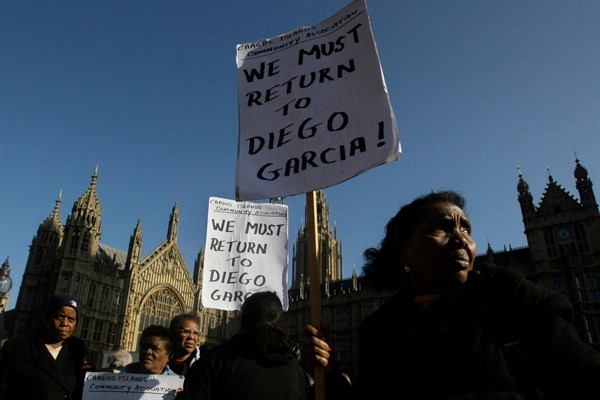The British government has been vocal about the issue of human rights in China in recent weeks. It recently delivered a joint statement to the United Nations Human Rights Council, on behalf of 27 countries, on abuses in Hong Kong and Xinjiang. And Foreign Secretary Dominic Raab has strongly criticized Beijing for imposing sweeping national security legislation that severely undermines the autonomy of Hong Kong, which the Chinese government promised to respect in the 1984 Sino-British Joint Declaration. Raab specifically called out Beijing for violating its international legal obligations, while announcing that the U.K. would not shirk from its “historic responsibilities” to Hong Kong’s inhabitants. It subsequently decided to suspend its extradition treaty with Hong Kong.
The U.K.’s appeals to international law in this context are, no doubt, fully justified. However, this kind of diplomacy works best when the advocating state has an impeccable record of compliance with international law. The U.K.’s refusal to relinquish control of the Chagos Islands to Mauritius, in contravention of a recent advisory opinion from the International Court of Justice in The Hague, seriously weakens its ability to lecture other states about living up to their human rights obligations.
The origins of the dispute date back to 1964, when a joint British and American survey of the Indian Ocean revealed that the island of Diego Garcia in the remote Chagos archipelago, which was then part of the British colony of Mauritius, would make an ideal site for a U.S. military facility. The following year, the U.K. pressured Mauritian officials into reaching an agreement providing for the detachment of the archipelago. Mauritian negotiators saw this as the price of independence, which became official in 1968. The Chagos Islands became part of the new British Indian Ocean Territory, and the U.K. concluded a treaty with the U.S. allowing American forces to use Diego Garcia for defense purposes. Thousands of Indigenous Chagossians were forcibly removed from the entire archipelago to make way for the new military base.

